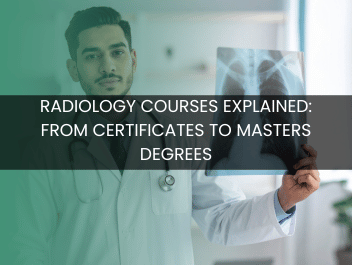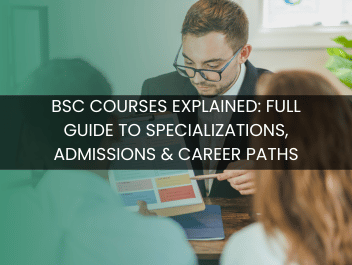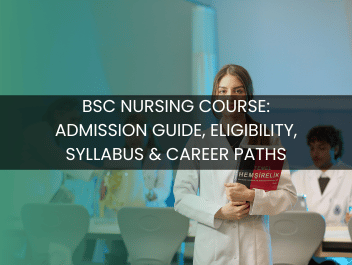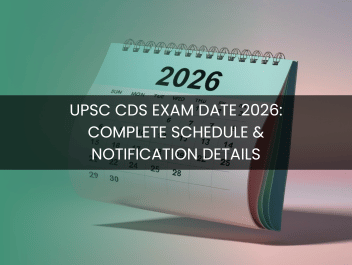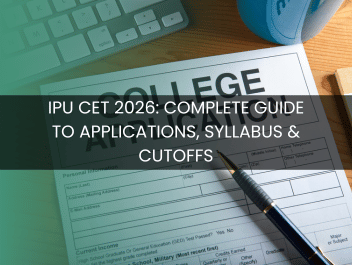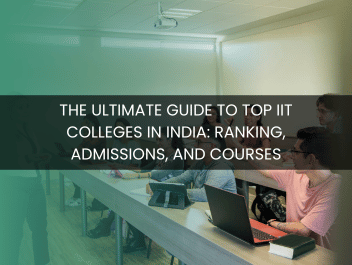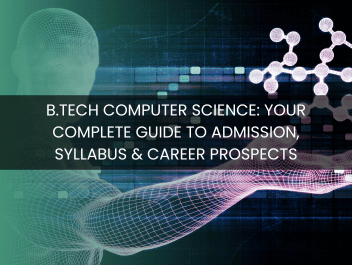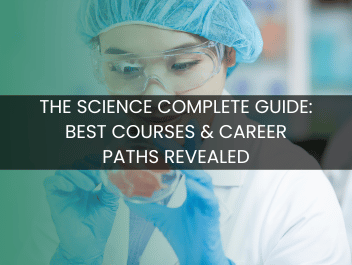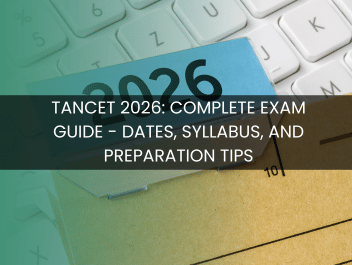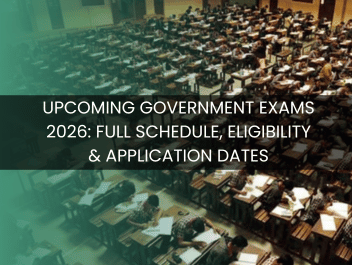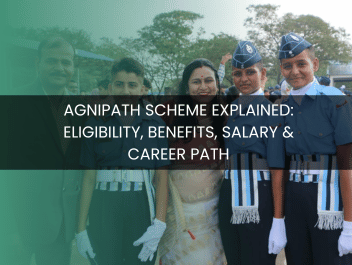
Exploring Advanced Studies: Top Entrance Exams for Engineering Graduates
Embarking on the path of advanced studies requires a strategic approach, especially for engineering graduates. With a myriad of competitive exams after BTech, ranging from the Graduate Aptitude Test in Engineering (GATE) to the Xavier Aptitude Test (XAT), the options are vast yet focused, offering diverse career prospects. Understanding these exams after engineering can significantly enhance career trajectories and align with individual aspirations.
For engineering graduates in India, navigating the competitive exams after BTech such as the IIIT PGEE, VIT MEE, and Indian Navy Entrance Test (INET) can open doors to prestigious institutions and sectors including defense, technology, and business management. These exams not only serve as a gateway to higher education but also as a stepping stone to enter elite circles of professional expertise.
This article will delve into the top entrance exams for engineering graduates, providing an overview of each examination, its significance, and preparation strategies. By exploring options like the Common Entrance Examination for Design (CEED) and opportunities in ISRO and DRDO, graduates can strategically plan their careers and pursue interdisciplinary avenues that merge technology, design, and management effectively.
Table of Content
- 1. Overview of Advanced Studies for Engineering Graduates
- 2. Graduate Aptitude Test in Engineering (GATE): Gateway to Postgraduate Programs
- 3. Indian Navy Entrance Test (INET): Serving with Engineering Expertise
- 4. IIIT PGEE: Entering the Prestigious IIITs
- 5. VIT Masterâs Entrance Examination (VIT MEE): Advancing at VIT
- 6. Common Entrance Examination for Design (CEED): Bridging Innovation and Engineering
- 7. Xavier Aptitude Test (XAT): Engineering to Business Management
- 8. Opportunities in Government Sectors: ISRO and DRDO
- 9. Interdisciplinary Avenues: Merging Tech and Design
- 10. Navigating International Entrance Exams
- 11. Tips for Balancing Work and Study During Exam Preparation
- 12. Choosing the Right Exam for Your Career Aspirations
- 13. Resources and Preparation Strategies for Success
- 14. Understanding the Exam Patterns and Syllabus
- 15. Conclusion: Charting a Path to a Bright Future
Overview of Advanced Studies for Engineering Graduates
For engineering graduates, choosing the right path post-graduation is crucial. Many opt for competitive exams after BTech to secure promising career opportunities. Here’s a brief overview:
- GATE (Graduate Aptitude Test in Engineering): A highly competitive exam for those pursuing higher studies or jobs in Public Sector Undertakings.
- GRE (Graduate Record Examination): Ideal for graduates seeking admission in top foreign universities for master's programs in engineering.
- CAT (Common Admission Test): A gateway for engineering graduates aiming to enter the management field via prestigious IIMs.
- IES (Indian Engineering Services): For those interested in working in various governmental departments.
- PSUs (Public Sector Undertaking Exams): Tailored for technical roles in leading public enterprises.
Comparison Table
|
Exam |
Purpose |
Domain |
|
GATE |
Higher studies, PSUs |
Engineering & Technical |
|
GRE |
Postgraduate in Foreign |
Wide range |
|
CAT |
Management Programs |
Business & Management |
|
IES |
Government Services |
Civil, Mechanical, Electrical |
These exams after engineering enhance both technical and problem-solving skills, paving paths for diverse career opportunities.
Graduate Aptitude Test in Engineering (GATE): Gateway to Postgraduate Programs
The Graduate Aptitude Test in Engineering (GATE) is an essential competitive exam for engineering graduates aiming to pursue postgraduate programs. It serves as a gateway for admissions to Master's and Doctoral programs across premier institutes like the Indian Institutes of Technology (IITs) and National Institutes of Technology (NITs).
Why Choose GATE?
- Wide Range of Disciplines: GATE covers various
engineering fields, including Mechanical, Electrical, and Civil Engineering.
- Opportunities in Public Sector: Successful candidates can apply for
prestigious Public Sector Undertakings (PSUs).
- Higher Education: GATE scores are crucial for post-bachelor's degree
programs in India and abroad.
GATE Exam Overview
|
Aspect |
Details |
|
Conducted By |
Indian Institute of Science & IITs |
|
Exam Duration |
3 Hours |
|
Sections |
General Aptitude and Engineering Specific |
|
Score Validity |
3 Years |
Candidates must prepare diligently, focusing on technical and problem-solving skills. Mock tests and previous question papers aid in understanding the exam's pattern and difficulty level. Successfully clearing GATE can significantly impact your engineering career path, offering both academic and professional growth opportunities.
Indian Navy Entrance Test (INET): Serving with Engineering Expertise
The Indian Navy Entrance Test (INET) is a prestigious avenue for those holding an engineering degree to serve the nation with their technical skills. Designed to gauge a candidate's engineering expertise, the exam offers a pathway to the Indian Navy's officer cadre.
Key Highlights of INET:
- Eligibility: Graduates with an engineering degree
from recognized Indian institutions are eligible.
- Skills Tested: The exam assesses problem-solving skills, technical
skills, and current events knowledge.
- Structure: INET includes sections on Mechanical Engineering,
Electrical Engineering, and various other engineering disciplines.
Engineers can participate in the INET to pursue a career path offering diverse roles in technology, energy efficiency, and strategic operation. This competitive exam broadens career opportunities for B.Tech graduates beyond traditional fields.
Successfully clearing INET ensures a position in one of the most esteemed branches of defense. It's a gateway for those wishing to apply their engineering knowledge in a real-world context, addressing challenges on high seas and contributing to national security.
IIIT PGEE: Entering the Prestigious IIITs
The International Institute of Information Technology Postgraduate Entrance Examination (IIIT PGEE) is a key exam for aspiring engineers seeking admission to premier IIITs. This exam is essential for those aiming to specialize in areas like Computer Science, Electronics, and Computational Natural Sciences.
Key Facts about IIIT PGEE:
- Eligibility: Candidates must possess an engineering
degree or equivalent in relevant fields.
- Exam Pattern: The exam assesses technical skills and problem-solving
abilities. It usually includes sections on mathematics and core engineering
subjects.
- Application: The National Testing Agency (NTA) manages the application
process. It generally opens in the first quarter of the year with exams
scheduled shortly after.
- Institutions: Successful candidates can land admissions in top IIITs,
including Private Colleges like SRM Institute of Science and Technology and
Kalinga Institute of Industrial Technology.
Preparing for the IIIT PGEE requires dedication. Mock tests are an excellent way to hone technical skills and familiarize oneself with potential question papers. Staying updated with current events is also advantageous. Ultimately, acing this competitive exam opens doors to exceptional engineering programmes.
VIT Master’s Entrance Examination (VIT MEE): Advancing at VIT
The VIT Master’s Entrance Examination (VIT MEE) is a critical step for aspiring graduate students aiming to advance their education at Vellore Institute of Technology (VIT). Known for its cutting-edge curriculum and innovation, VIT offers a wide range of master's programs across various disciplines.
Key Highlights of VIT MEE:
- Eligibility: Candidates must hold a relevant undergraduate degree with a satisfactory academic record.
- Exam Details: VIT MEE assesses technical skills and problem-solving abilities, crucial for excelling in specialized fields.
- Preparation: Comprehensive mock tests and question papers are important tools for success. Engaging with these resources will enhance exam readiness and confidence.
- Programs Offered:
- M.Tech in Mechanical Engineering
- M.Tech in Electrical Engineering
- M.Tech in Civil Engineering
Exam Structure:
|
Section |
Description |
|
Technical Skills |
Focus on core engineering subjects |
|
Problem Solving |
Application of knowledge in scenarios |
Appearing for the VIT MEE opens the door to a myriad of opportunities in engineering sectors, further supported by VIT's state-of-the-art facilities and experienced faculty. Prepare well, and you can achieve your academic aspirations at one of India's leading institutes.
Common Entrance Examination for Design (CEED): Bridging Innovation and Engineering
The Common Entrance Examination for Design (CEED) serves as a vital bridge, harmonizing innovation with engineering. As an entrance exam, CEED is ideal for those seeking to merge their engineering knowledge with design skills. It’s a gateway for aspirants aiming to pursue design courses in premier institutes.
Key Facts about CEED:
- Eligibility: Candidates with an engineering degree
or equivalent are eligible.
- Purpose: Evaluates design aptitude, creativity, drawing skills, and
problem-solving abilities.
- Institutions: Admission to programs at institutions like IITs and
IISc.
- Exam Format: The test comprises a mix of objective and subjective
questions. It tests skills crucial for a design career.
Why Choose CEED?
- Integrates Innovation and Engineering: Ideal for engineering graduates seeking to innovate via design.
- Diverse Opportunities: Opens doors to design departments in various sectors.
- Skill Development: Enhances both technical and creative capabilities.
CEED fosters a new wave of designers capable of blending technical skills with innovative design principles. Whether you hold a degree in mechanical engineering or another field, this exam can propel your career in creative directions.
Xavier Aptitude Test (XAT): Engineering to Business Management
Engineers looking to pivot towards business management can greatly benefit from the Xavier Aptitude Test (XAT). Held annually, XAT is a gateway to some of the leading business schools in India, offering a pathway from a technical engineering degree to a business-focused career.
Why XAT for Engineers?
- Diverse Curriculum: XAT challenges problem-solving skills honed during engineering. It focuses on decision-making, a crucial aspect for managerial roles.
- Wide Range of Institutes: Successful XAT applicants can choose from top management institutions like XLRI, SPJIMR, and more.
- Sections: The test comprises Quantitative Ability, English Language & Logical Reasoning, Decision Making, and current events in the General Knowledge section. It aligns well with an engineer’s analytical mindset.
Preparation Tips for Engineers:
- Utilize mock tests to identify strengths and areas
for improvement.
- Focus on technical skills and enhancing your English proficiency.
- Strategize by practicing with previous year question papers.
XAT opens opportunities for those eager to transition from engineering to business, leveraging both technical expertise and new managerial acumen. With dedication, engineers can excel in this competitive exam, unlocking new career avenues.
Opportunities in Government Sectors: ISRO and DRDO
Opportunities in government sectors like ISRO and DRDO present promising careers for engineering graduates. These organizations are at the forefront of India's space and defense advancements. For engineers, especially from fields such as Mechanical Engineering, Electrical Engineering, and Civil Engineering, ISRO and DRDO offer roles that demand strong technical skills and problem-solving abilities.
Key Opportunities:
- ISRO (Indian Space Research Organisation): Known for its space missions, ISRO seeks engineers for satellite development, ground system design, and energy efficiency engineering.
- DRDO (Defence Research and Development Organisation): Focuses on defense technologies, offering jobs in missile systems, electronics, and robotics.
List of Competitive Exams:
To secure a position, engineers often take competitive exams after BTech. These exams assess both technical acumen and current events awareness. Some key tests include:
- ISRO Scientist/Engineer Exam
- DRDO Scientist Entry Test
Preparation involves mock tests and reviewing previous question papers. Success in these exams guarantees a fulfilling career in prestigious government sectors, contributing significantly to national projects and innovations.
Interdisciplinary Avenues: Merging Tech and Design
In today's rapidly evolving digital world, merging technology with design creates exciting opportunities. This interdisciplinary approach allows for innovative solutions and enhances both technical and aesthetic aspects. Engineers and designers collaborate to create products that are not only functional but also user-friendly and visually appealing.
Key Areas of Integration:
- User Interface (UI) and User Experience (UX): Bridging the gap between technical development and user-centric design ensures intuitive and engaging digital experiences.
- Product Design: Incorporating technology into product design leads to improved functionality, efficiency, and sustainability.
- Smart Homes and Cities: Combining engineering and design fosters smart solutions for energy efficiency and convenience.
Benefits of Interdisciplinary Collaboration:
- Enhanced Innovation: Blending different
perspectives spurs creativity and novel solutions.
- Market Relevance: Products that blend tech and design have a
competitive edge, meeting the ever-changing demands of consumers.
- Advanced Problem-Solving Skills: Collaborative efforts improve
problem-solving skills, essential in today's complex scenarios.
Whether it's through the creation of sleek gadgets or intelligent urban solutions, the fusion of technology and design is paving the way for a future that prioritizes both functionality and aesthetics.
Navigating International Entrance Exams
Navigating international entrance exams can be a crucial step for students dreaming of pursuing education abroad. These exams test your technical skills, problem-solving skills, and grasp on current events, assessing your readiness for diverse educational environments.
Key International Entrance Exams:
- TOEFL and IELTS: Evaluate your English proficiency,
essential for non-native speakers.
- SAT and ACT: Common for undergraduate admissions in the U.S.,
measuring mathematical and verbal skills.
- GRE and GMAT: Required for postgraduate programs, focusing on
analytical writing and quantitative reasoning.
Here's a quick comparison:
|
Exam |
Purpose |
Score Range |
|
TOEFL |
English Proficiency |
0-120 |
|
IELTS |
English Proficiency |
0-9 |
|
SAT |
Undergraduate Admission |
400-1600 |
|
GRE |
Postgraduate Admission |
130-170 per section |
Successful preparation involves familiarizing yourself with mock tests and practicing past question papers. Check exam dates and requirements for specific institutions like SRM Institute of Science and Technology or Birla Institute of Technology and Science to ensure timely application. Understanding these elements helps navigate the wide range of international exams efficiently.
Tips for Balancing Work and Study During Exam Preparation
Balancing work and study during exam preparation can be challenging. Effective time management is key. Create a study schedule that prioritizes crucial topics and accommodates your work hours.
Tips for Balance:
- Set Clear Goals: Identify the exams after engineering that are your priority.
- Prioritize Tasks: Focus on tasks that enhance your technical skills and problem-solving skills.
- Use Breaks Wisely: During breaks, review summaries or solve quick problem sets.
- Leverage Resources: Utilize question papers and mock tests for practice.
- Stay Organized: Keep a checklist of engineering exams and competitive exams after btech.
- Maintain Health: Ensure to get enough sleep and eat well to keep your energy high.
|
Time Management Table |
|
Study Hours |
Work Hours |
|
6 PM - 8 PM |
9 AM - 5 PM |
Balancing your career path in fields like civil engineering or electrical engineering with exams is crucial for success. Consider applying these tips in preparation for exams, engineering entrance exams, or even civil services exams. Make sure you regularly assess your progress to stay on track.
Choosing the Right Exam for Your Career Aspirations
Choosing the right exam for your career aspirations, especially after an engineering degree, is crucial. With a wide range of exams after engineering available, it's important to focus on competitive exams after BTech that align with your goals.
Here's a list of popular exams after engineering to consider:
- GATE (Graduate Aptitude Test in Engineering) - Ideal for those pursuing higher studies or aiming for positions in Public Sector Undertakings (PSUs).
- CAT (Common Admission Test) - Suitable for engineers interested in management roles by enrolling in MBA programs.
- IES (Indian Engineering Services) - Perfect for engineers wishing to join the government sector in technical roles.
- GRE (Graduate Record Examination) - A great option for those planning to study abroad.
- SSC (Staff Selection Commission) - Useful for securing a governmental position in various departments.
These exams test technical skills and problem-solving abilities, vital for turning your engineering degree into a successful career. Research each exam's structure, exam dates, and eligibility requirements to make an informed decision. Remember, choosing the right path through these exams can lead to fulfilling opportunities in esteemed engineering colleges and beyond.
Resources and Preparation Strategies for Success
Preparing for exams after engineering requires strategic planning and the right resources. Here's a structured guide to boost your success:
Key Resources:
- Mock Tests: Essential for understanding the exam
format and timing.
- Question Papers: Previous years’ papers help identify recurring
topics.
- Books & Online Material: Reliable comprehensive sources tailored
for competitive exams after BTech.
Preparation Strategies:
- Know the Exam Dates: Stay updated with the schedule to plan your study timetable.
- Field-Specific Focus: If you're targeting Mechanical or Electrical Engineering, tailor your preparation to include relevant technical skills.
- Problem-Solving Skills: Practice daily to enhance analytical thinking.
- Join Online Forums: Engage with a community for support and insights.
Recommended Exams:
- Indian Engineering Services (IES)
- Civil Services
- SRM Institute of Science and Technology Entrance
- Birla Institute of Technology and Science Admission Test (BITSAT)
Ensure you have a systematic study routine and adapt to changes in exam patterns. With dedication and the right approach, success in competitive exams after engineering becomes achievable.
Understanding the Exam Patterns and Syllabus
Understanding the exam patterns and syllabus is vital for success in competitive exams after engineering. When diving into exams after engineering or competitive exams after BTech, familiarizing yourself with the test structure is crucial.
Here’s a quick breakdown:
- Exam Duration: Most competitive exams have a time
frame ranging from 2 to 3 hours.
- Question Types: Typically, exams feature multiple-choice questions,
which test both technical skills and problem-solving skills.
- Sections: Exams often include sections on core engineering concepts,
analytical ability, and general awareness, ensuring a comprehensive assessment.
Here's a table illustrating common sections in competitive exams after BTech:
|
Section |
Focus Area |
|
Core Subject |
In-depth knowledge of engineering subjects |
|
Analytical Ability |
Critical thinking and reasoning |
|
General Awareness |
Current events and general knowledge |
Knowing the syllabus ensures targeted preparation. One should revisit engineering fundamentals and practice through mock tests. Keep track of exam dates via reliable sources, like the National Testing Agency. Such structured preparation is the key to acing exams after engineering and lays a solid foundation for a successful career journey.
Managing Stress and Maintaining Motivation
Managing stress and maintaining motivation are crucial for success in any field, including exams after engineering. Here are some key strategies:
- Set Clear Goals: Define what you want to achieve with competitive exams after BTech. This provides direction and purpose.
- Develop a Study Plan: Break down your study materials into manageable parts. Use this plan to track your progress.
- Practice Mindfulness: Techniques like meditation and deep breathing can help reduce stress levels, which is essential when preparing for exams after engineering.
- Stay Physically Active: Regular exercise boosts mood and energy levels, keeping you motivated.
- Seek Support: Engage with study groups or talk to peers who are also focused on competitive exams after BTech. Sharing insights can enhance motivation.
- Take Breaks: Avoid burnout by taking short, frequent breaks during study sessions.
Below is a summary table for quick reference:
|
Strategy |
Benefit |
|
Set Clear Goals |
Provides direction |
|
Develop a Study Plan |
Tracks progress |
|
Practice Mindfulness |
Reduces stress |
|
Stay Physically Active |
Boosts mood and energy |
|
Seek Support |
Enhances motivation |
|
Take Breaks |
Prevents burnout |
Adopting these strategies can significantly aid in managing stress and maintaining motivation during and beyond your exams after engineering.
Conclusion: Charting a Path to a Bright Future
After completing an engineering degree, graduates face numerous competitive exams after BTech. These exams are vital for those wanting to further their education or advance in their careers. From the prestigious Indian Engineering Services to technical posts in Civil Services, these exams open doors to a bright future.
Preparing for exams after engineering can be daunting. Here's a quick list to help you prepare:
- Develop technical skills and problem-solving skills through mock tests.
- Stay updated on current events which are crucial for many competitive exams.
- Choose the right path in fields like Mechanical Engineering or Energy Efficiency Engineering.
For those interested in academia, exams for Private University admissions, such as the Birla Institute of Technology and Science, are vital. Furthermore, private engineering colleges like SRM Institute of Science and Technology and Kalinga Institute of Industrial Technology offer excellent opportunities.
Below is a table summarizing some popular competitive exams after BTech:
|
Exam Name |
Focus Area |
|
Indian Engineering Services |
Government Technical Posts |
|
Graduate Aptitude Test in Engineering (GATE) |
Higher Studies & PSU Jobs |
|
Joint Entrance Examination Advanced (JEE) |
Engineering Colleges Admissions |
By wisely choosing the right engineering programmes and preparing well, aspiring engineers can effectively chart a path to a successful career.
Looking For Job Satisfaction on the long run?
Please feel free to contact our experts
Call to ask any question
+91-9319336222Monday to Saturday
(9:00 AM to 8:00 PM)Resent Blogs
10 Things to Do During an Interview to Impress Your Future Employer
Learn MoreCrafting Your Personal Narrative: A Guide to Writing About Yourself
Learn MoreTop 10 Essential Interview Questions and Expert Answers for 2025
Learn MoreAce Your Next Interview: Essential Questions and Expert Answers for 2025
Learn MoreFirst-Time Manager Interview: Crucial Questions and Strategies for Success
Learn More150 Essential General Knowledge Questions for Interviews in 2025
Learn MoreMaster the Google Interview: Strategies for Success in 2025
Learn MoreHow Can You Describe Yourself Professionally? 5 Key Strategies You Need to Know
Learn MoreMastering the Art of How to Take Interview: Essential Techniques for Success
Learn More25 Essential HR Interview Questions and Answers PDF You Can't Ignore
Learn More7 Tips to Ace Your HR Screening Round and Land Your Dream Job
Learn More10 Essential Tips for Acing Your Interview Exam
Learn More5 Unique Interview Format Examples to Stand Out in Your Next Interview
Learn More5 Powerful Techniques for a Memorable Interview Introduction
Learn MoreMaster Your Next Interview with These Top Interview Preparation Apps
Learn MoreMastering the Art: Top Interview Questions for 12th Class Students
Learn More7 Must-Know Interview Questions for Freshers to Ace Your Job Hunt
Learn MoreMastering Interview Questions for HR Position with Answers: Strategies for Success
Learn More12 Essential Interview Questions for Recruiter Position You Should Prepare For
Learn More10 Must-Know Interview Questions UK Employers Love to Ask
Learn More10 Creative Interview Writing Examples to Spark Your Imagination
Learn More15 Essential Managerial Interview Questions for Freshers to Prepare
Learn More15 Unique Marketing Interview Questions You Haven't Prepared For
Learn More7 Key Strategies for a Successful Mock Interview Session
Learn MoreThe Ultimate Guide to Model Interview Questions: What You Need to Know
Learn More5 My Self Question Exercises to Unlock Your True Potential
Learn More10 Normal Questions That Can Spark Deep Conversations
Learn More15 Essential Personal Interview Questions for Freshers to Ace Your Next Job
Learn More10 Essential Phone Interview Questions You Can’t Afford to Ignore
Learn More15 Essential Sales Interview Questions and Answers for Freshers
Learn More7 Key Situational Interview Questions Every Employer Should Ask
Learn More15 Essential Software Developer HR Interview Questions You Need to Prepare For
Learn MoreMastering the Technical Interview: Essential Questions and Answers
Learn MoreTop Strategies for Responding to Tell Me About Yourself in a Student Interview
Learn MoreTop 10 Interview Questions and Expert Answers
Learn MoreMastering the Art of Interviewing: 50 Tough Questions and Smart Answers
Learn MoreHow to Ace Your Next Mock Interview: Tips and Strategies for Success
Learn MoreYour Ultimate Guide: 60 Insightful Questions to Ask Interviewers
Learn MoreCrafting the Perfect Response to Why Do You Want This Job?
Learn MoreUnique Ways to Tackle the Question Why Should We Hire You?
Learn MoreWhy Should We Hire You? - Top 10 Answers for Customer Service Roles
Learn MoreMastering the Art of Discussing Work Experience in Interviews
Learn MoreMastering Your Sales Interview: 50 Essential Questions and Answers
Learn MoreCareer Paths After 12th Commerce: Your Future Starts Here
Learn MoreExplore One-Year Courses After 12th for Non-Medical Students
Learn MoreQuick Career Paths: 2-Year Degree Courses After 12th for Fast-Track Success
Learn MoreComprehensive Guide: Courses After 12th Commerce
Learn MoreTop 10 Lucrative Courses to Consider After Completing Engineering
Learn MoreAdvancing Your Career: Top Choices After B.Tech in 2025
Learn MoreExplore Your Future: After CET Exam Which Course is Best for Aspiring Professionals?
Learn More5 Reasons Why After Inter CEC, Choosing the Right Course is Crucial
Learn MoreAfter PUC Which Course is Best for Aspiring Engineers? Explore Your Options!
Learn MoreUnlocking Your Future: Best Arts and Science Courses After 12th for 2025
Learn MoreWhy a Bachelor Degree in Commerce is Your Pathway to Success
Learn More15 Best Career Courses to Boost Your Earning Potential in 2025
Learn MoreEmerging Career Fields for 2025: What You Need to Know
Learn MoreExploring In-Demand Career Paths After 12th: Science, Arts, Commerce
Learn More15 Lucrative Science Careers You Should Consider
Learn MoreHigh-Paying Career Paths for Girls After 12th Commerce
Learn MoreTop 10 High Salary Career Courses After 12th Biology
Learn MoreTop 10 High-Paying BSc Specializations for 2025
Learn MoreExploring the Future: Innovative Career Paths for B.Tech Graduates in 2025
Learn MoreComprehensive Guide to B.Tech Specializations for MPC Graduates
Learn MoreUnlocking Your Potential: The Ultimate B Tech Job List for 2025
Learn MoreB.Tech Salary Insights: How Much Can You Earn Per Month?
Learn MoreEssential Business Courses After 12th: Your Guide to a Successful Career
Learn MoreHow Commerce Students Can Transition to BSc IT
Learn MoreExploring Career Paths After 12th: Your Guide to Success in 2025
Learn MoreCertainly! Here are 10 additional title ideas inspired by the list you provided
Learn MoreExploring Career Paths After Engineering: Your Guide to the Future
Learn MoreThe Ultimate Guide to Career Options Post-High School Graduation
Learn MoreDiscover the Top 10 Chemistry Courses After 12th That Lead to High-Paying Jobs
Learn MoreExplore the Best Diploma and Certificate Programs After 12th Commerce
Learn MoreCareer Paths for Computer Science Graduates: Top Opportunities to Explore
Learn MoreExplore Top Courses After 12th: Your Path in Science, Arts, or Commerce
Learn MoreTop 10 Courses After 12th Commerce for a Successful Career
Learn MoreTop Paying Professional Courses After 12th for Commerce Students
Learn MoreEmerging Career Paths After 12th Commerce Without Maths
Learn MoreExploring Career Paths After 12th Science: A Complete Guide
Learn MoreComprehensive Guide to Courses and Career Paths after 12th Grade
Learn MoreEmerging Career Paths in India: What to Expect in 2025
Learn MoreTop Diploma Paths for Students After Completing 12th Science
Learn MoreTop 15 Easiest High-Paying Jobs to Pursue in India by 2025
Learn MoreNavigating Your Future: Easy Degree Options After 12th
Learn MoreExploring Top Engineering Branches After 12th: A Comprehensive Guide
Learn MoreExploring Advanced Studies: Top Entrance Exams for Engineering Graduates
Learn MoreMBA Salary Insights: Top Packages and Compensation Trends in India
Learn MoreTop 15 Lucrative Careers in India for 2025
Learn MoreTop 10 High-Paying Jobs for Commerce Graduates Without Maths
Learn MoreTop 10 High Salary Courses After 12th PCB for Future Success
Learn MoreHigh-Earning Courses to Pursue After 12th Science in 2025
Learn MoreHigh Paying Career Paths for BiPC Students: Top 10 Courses to Consider
Learn MoreExploring High-Paying Engineering Degrees for the Future
Learn MoreExploring Integrated Courses After 12th: A Comprehensive Guide for Students
Learn MoreExploring Career Prospects: What Can You Do with a BBA Degree?
Learn MoreTop 15 In-Demand Professional Courses for Commerce Graduates in 2025
Learn MoreExploring Lucrative Job Paths for BBA Graduates in 2025
Learn MoreMBA Full Form Explained: Master of Business Administration & Its Strategic Career Value
Learn MoreBBA Full Form: The Definitive Guide to BBA Degrees, Admissions, & Career Paths
Learn MoreBCA Full Form Explained: Your Complete Guide to the Degree, Admission & Career Scope
Learn MoreIAS Full Form: Indian Administrative Service Explained & Its Pivotal Role
Learn MoreMBBS Full Form: Unraveling the Meaning Behind a Doctors Qualification
Learn MoreUPSC Full Form: Union Public Service Commission and Its Vital Role
Learn MoreBSc Full Form: Bachelor of Science & What It Means for Your Future
Learn MoreITI Full Form: What Exactly is Industrial Training Institute?
Learn MoreLLB Full Form: Your Ultimate Guide to Bachelor of Laws, Eligibility & Career Scope
Learn MoreIs There a True Computer Full Form? Unpacking the Popular Acronym
Learn MoreB.Tech Full Form Unpacked: Meaning, Scope, and Why It Matters for Your Career
Learn MoreIIT Full Form: Unveiling the Indian Institute of Technology and Its Legacy
Learn MoreMCA Full Form Revealed: Master of Computer Applications & Its Significance
Learn MoreIIT Full Form: Indian Institute of Technology – Understanding Its Legacy, Campuses, and Global Standing
Learn MoreYour Complete Guide to Becoming a Veterinarian: Education, Specialties & Career Paths
Learn MoreBSc Degree: Your Complete Guide to Courses, Careers, and Future Prospects
Learn MoreB.Com Full Form Unveiled: What Bachelor of Commerce Truly Means
Learn MoreBAMS Full Form: Bachelor of Ayurvedic Medicine and Surgery — Unpacking Its Meaning & Career Scope
Learn MoreWhat is a Polytechnic? Your Complete Guide to Courses, Admissions & Career Paths
Learn MoreSSC GD Constable Exam News 2025-26: Latest Updates on Vacancies, Dates & Application
Learn MoreHow to Choose the Best Veterinarian for Your Pet: A Comprehensive Guide
Learn MoreAir Hostess 2026: Your Complete Roadmap to Landing the Dream Job
Learn MoreUnlocking Your Future: The Ultimate BSc Degree Guide (Courses, Careers & Admissions)
Learn MoreCMA Full Form: Certified Management Accountant (Global Standard Explained)
Learn MoreNACH Full Form Explained: What It Is & Why It Matters in Banking
Learn MoreThe Modern Anthropologist: Understanding Their Role, Impact, and Diverse Specializations
Learn MoreBBA: Your Ultimate Guide to Course Details, Admission, Fees, and Future Career Prospects
Learn MoreBDS Full Form Unpacked: Your Essential Guide to Dentistry Courses, Admissions & Career Scope
Learn MoreBHMS Full Form Revealed: Your Complete Guide to Bachelor of Homeopathic Medicine & Surgery
Learn MoreB.Tech Admissions 2026: Your Complete Guide to Courses & Eligibility
Learn MoreCFA Full Form: Understanding the Chartered Financial Analyst Designation
Learn MoreMerchant Navy Salary in India: Unveiling Pay Scales by Rank & Experience
Learn MoreTS EAMCET 2026: Official Notification, Exam Dates & Application Guide
Learn MoreVITEEE 2026: Full Guide to Application, Dates, Syllabus & Preparation
Learn MoreBMS Full Form: Unveiling Bachelor of Management Studies & What it Entails
Learn MoreB.Sc. Computer Science: Your Complete Guide to Courses, Careers & Eligibility
Learn MoreComputer Science Explained: From Basics to Advanced Concepts
Learn MoreWorlds Most Difficult Exams: A Definitive Ranking for 2025
Learn MoreUnion Public Service Commission (UPSC): All You Need to Know
Learn MoreBE Full Form Explained: What Bachelor of Engineering Means & Your Career Path
Learn MoreDMIT Full Form Revealed: Unpacking the Dermatoglyphic Multiple Intelligence Test
Learn MoreIndias Most Difficult Exams: The Ultimate Ranking for 2025
Learn MoreCLAT Full Form: Unveiling the Common Law Admission Test + Key Details
Learn MoreHighest Paying Jobs in India: Unveiling the Top 25 Roles & Their Lucrative Salaries
Learn MoreMA Full Form: Unpacking the Master of Arts Degree & What It Entails
Learn MoreMarketing Management Explained: Core Concepts & Strategic Implementation
Learn MoreBCA Course Subjects: A Comprehensive Guide to Your IT Degree Curriculum
Learn MoreCAT Exam Date 2026: When to Apply & Exam Schedule Revealed
Learn MoreCDS Full Form: Unveiling Combined Defence Services & Your Path to Commission
Learn MoreLab Technician Career Path: Duties, Skills, and Salary Guide
Learn MoreYour Complete Guide to Becoming a Successful Software Developer
Learn MoreAir Hostess Course Guide: Everything You Need to Know for Your Aviation Career
Learn MoreIntroduction: Navigating Your Path to Medical Excellence in India
Learn MoreTop Commerce Courses After 12th: Unlock Lucrative Career Paths
Learn MoreTop Industrial Training Institutes: Your Guide to Skilled Trades
Learn MoreUnderstanding Psychometric Tests: Your Definitive Guide & Free Examples
Learn MoreWhat Does a Surgeon Do? A Comprehensive Guide to the Profession
Learn MoreUG Explained: Your Ultimate Guide to Undergraduate Degrees & Admissions
Learn More10th Pass Govt Jobs 2026: Your Complete Guide to Apply & Secure Your Career
Learn MoreATMA: Your Complete Guide to the Management Admissions Test
Learn MoreBHMS Course Guide: Eligibility, Syllabus, Career Prospects & Top Colleges
Learn MoreUnlock Your Future: The Definitive Guide to Career Counselling
Learn MoreWhat Does a Clinical Psychologist Do? Your Comprehensive Guide
Learn MoreM.Tech Full Form: Master of Technology Explained (Meaning, Scope & Benefits)
Learn MoreRadiology Courses Explained: From Certificates to Masters Degrees
Learn MoreBSc Courses Explained: Full Guide to Specializations, Admissions & Career Paths
Learn MoreBSc Nursing Course: Admission Guide, Eligibility, Syllabus & Career Paths
Learn MoreBA LLB Full Form Explained: Unpacking Bachelor of Arts & Bachelor of Laws
Learn MoreTop BBA Colleges in India: Unveiling the Elite Institutions for Your Management Degree
Learn MoreUPSC CDS Exam Date 2026: Complete Schedule & Notification Details
Learn MoreTop Career-Focused Courses After 12th Grade: Unlock Your Future
Learn MoreExplore the World of Humanities Subjects: A Comprehensive Guide
Learn MoreIPU CET 2026: Complete Guide to Applications, Syllabus & Cutoffs
Learn MoreISI Full Form: Unveiling the Meaning & Importance of the Indian Standards Institute
Learn MoreJEE Advanced 2026 Exam Date: When Will the Exam Be Held?
Learn MoreJEE Main 2026 Result Date: When to Expect Session 1 & 2 Results
Learn MoreMCA Course Guide: Everything You Need to Know About Eligibility, Fees, and Admissions
Learn MoreMultimedia Explained: Your Complete Guide to Definition, Examples, and Impact
Learn MoreThe Ultimate Paramedical Courses List: Find Your Perfect Career Path
Learn MorePharm.D. Program: Your Complete Guide to Curriculum, Admissions & Outcomes
Learn MoreThe Ultimate Guide to Top IIT Colleges in India: Ranking, Admissions, and Courses
Learn MoreATC Full Form: Unpacking Air Traffic Control, Anatomy & More
Learn MoreB.Ed. Course Duration in India: Everything Aspiring Teachers Need to Know
Learn MoreB.Sc Psychology Degree: Your Guide to Admissions, Curriculum & Career Paths
Learn MoreB.Tech Computer Science: Your Complete Guide to Admission, Syllabus & Career Prospects
Learn MoreBDS Course Duration: How Long is Bachelor of Dental Surgery?
Learn MoreBFA Full Form Explained: What is a Bachelor of Fine Arts & Why it Matters
Learn MoreBiology Explained: What It Is, Its Core Concepts & Why It Matters
Learn MoreBPT Course: Your Complete Guide to Bachelor of Physiotherapy Admissions
Learn MoreBSc Nursing Full Form: What it Means and Why it Matters
Learn MoreThe Science Complete Guide: Best Courses & Career Paths Revealed
Learn MoreMaster Your Future: Your Complete Guide to 2026 Government Exams & How to Prepare
Learn MoreMPhil Explained: Your Complete Guide to the Master of Philosophy
Learn MoreBecome a Certified Stenographer: Your Complete Course Guide
Learn MoreTANCET 2026: Complete Exam Guide - Dates, Syllabus, and Preparation Tips
Learn MoreUpcoming Government Exams 2026: Full Schedule, Eligibility & Application Dates
Learn MoreWhat is CA? The Complete Guide to Chartered Accountancy and Your Career Path
Learn MoreAgnipath Scheme Explained: Eligibility, Benefits, Salary & Career Path
Learn MoreAFCAT 2026: Your Complete Guide to the Air Force Common Admission Test
Learn MoreConnet Us
Unlock Your Dream Career Potential - Get Expert Advice From Our Counselling Experts
































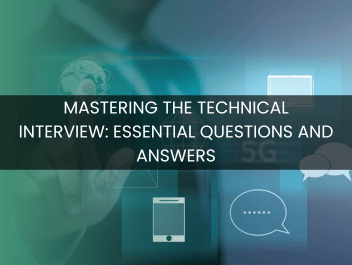











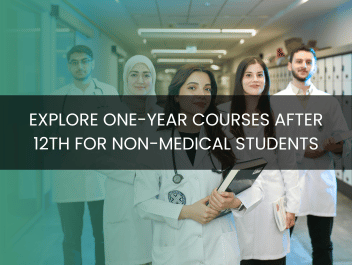

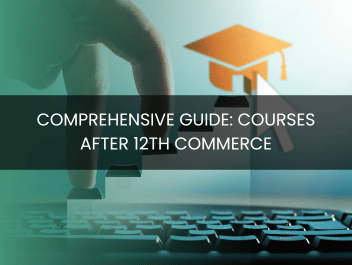

























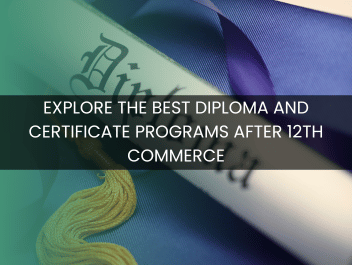

















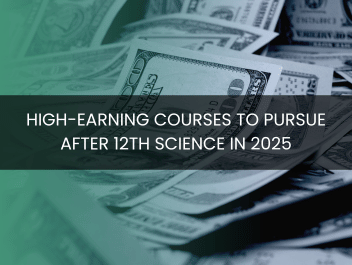


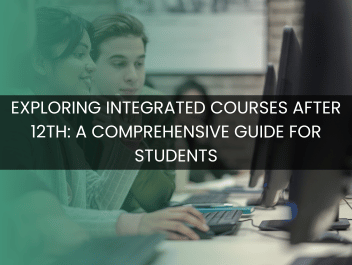






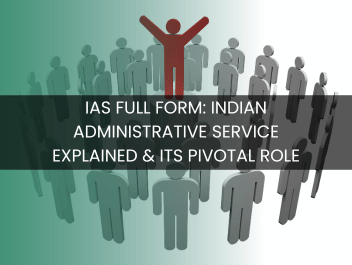



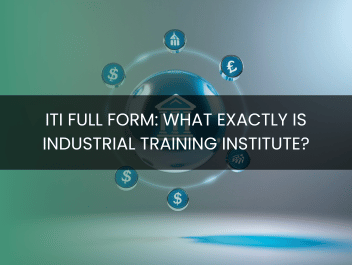



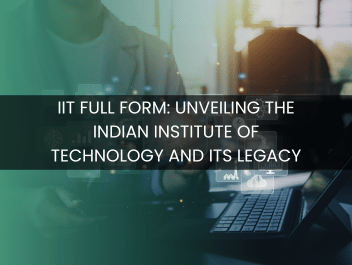

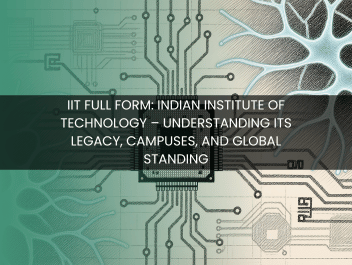
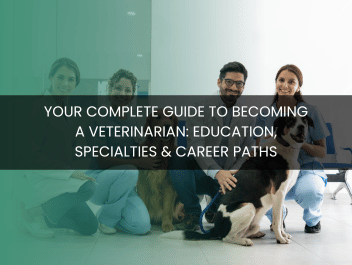
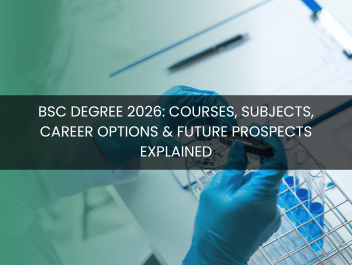



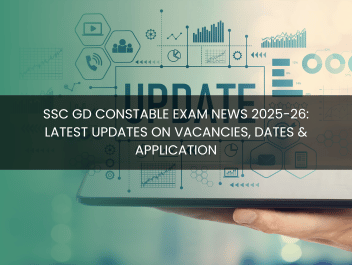


_Thumbnail_.png )
_Thumbnail_.png )





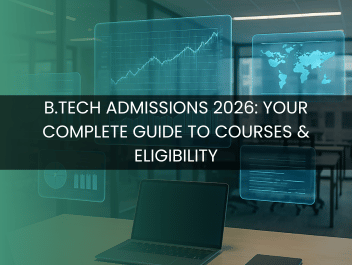

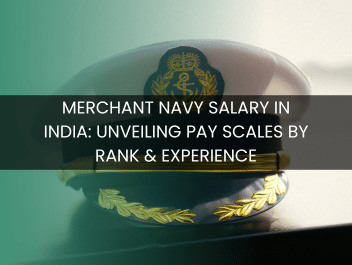
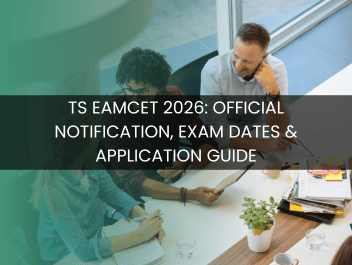
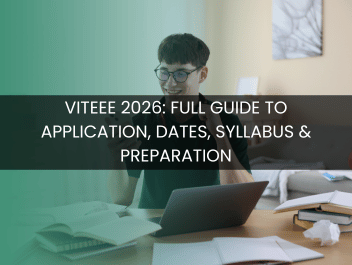

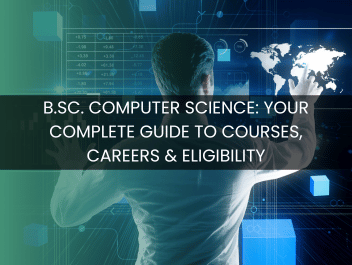


_All_You_Need_to_Know_Thumbnail_.png )


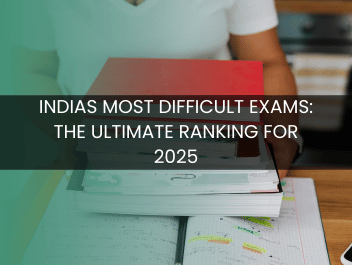



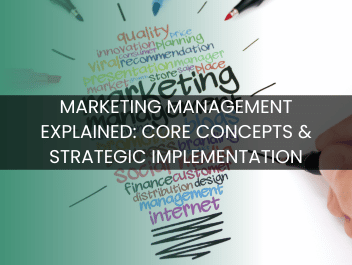
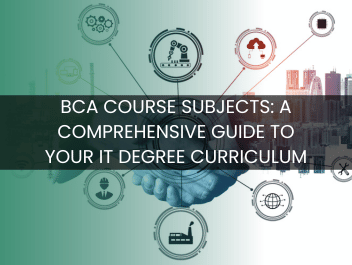
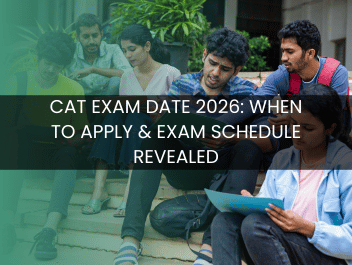


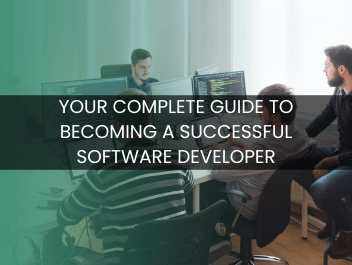












_Thumbnail_.png )
